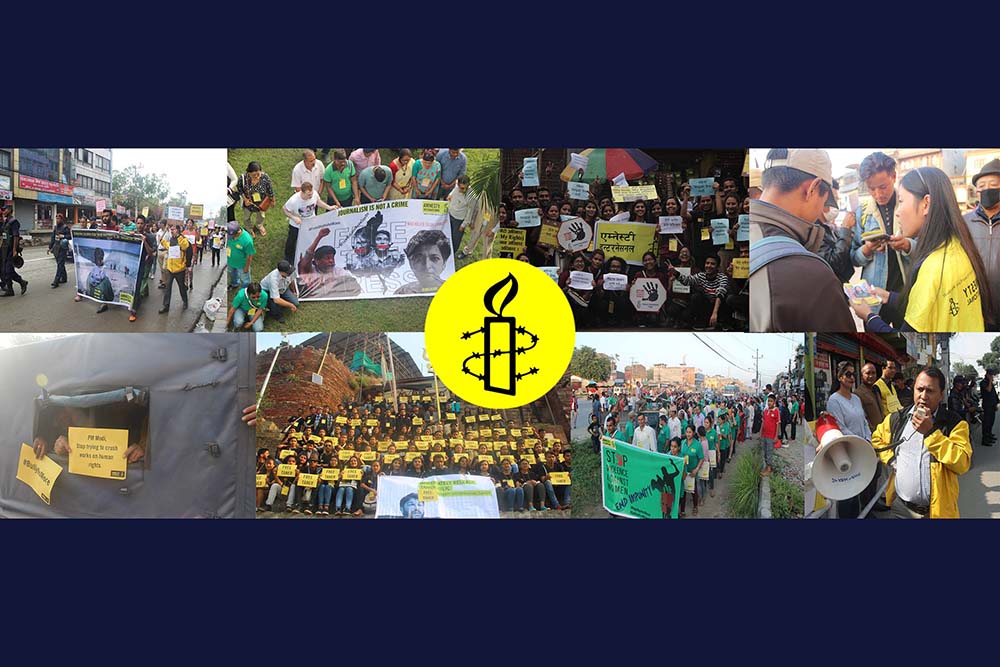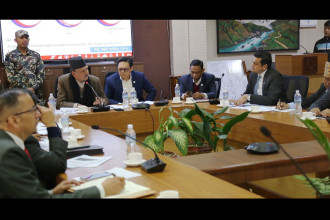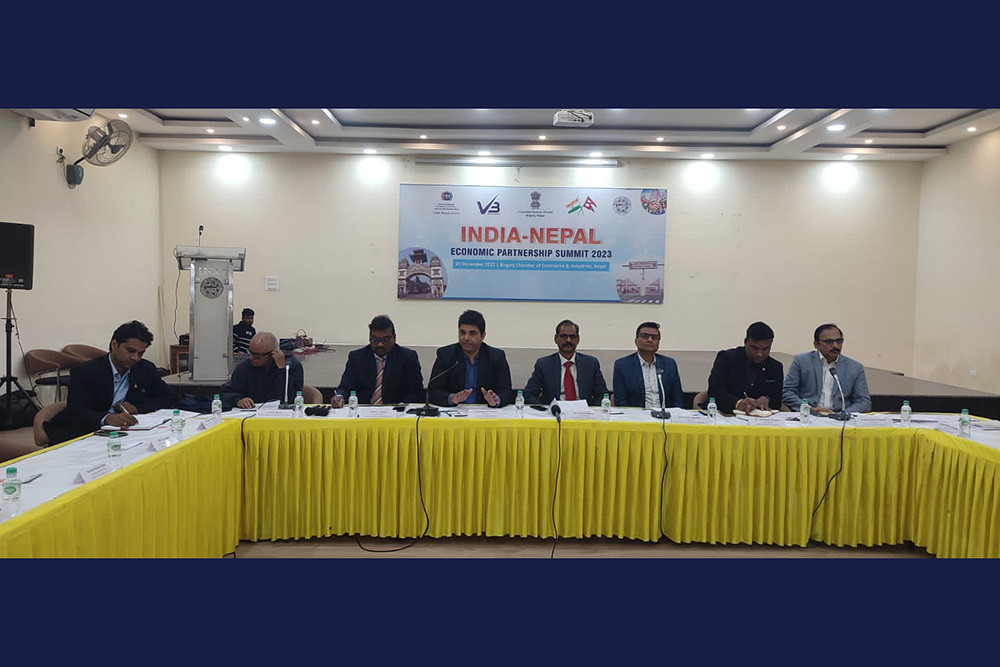
KATHMANDU: The authorities continued to use the Electronic Transactions Act 2006 to arbitrarily detain individuals, including journalists in Nepal, a report states.
The State of the World’s Human Rights noted that targets were particularly those critical of the government and of the leaders of the ruling party, according to Nepal Section of the Amnesty International’s Report 2021/22.
In February 2022, the Ministry of Communication and Information Technology drafted social media guidelines that would give the government sweeping powers to regulate social media content and criminalise users’ activities, including the ability to hold people liable for liking, sharing and commenting on posts.
“Several bills threatening the rights to freedom of expression and privacy remained pending in the federal parliament, and the provincial governments in Bagmati, Gandaki and Lumbini provinces drafted bills that would limit freedom of expression, especially media freedom”, the report highlighted.
In May last year, the Office of the Registrar of the Supreme Court summoned two journalists, pressuring them to divulge their sources and to apologise for reporting on an alleged meeting between then Prime Minister KP Sharma Oli and Chief Justice Cholendra Shumsher Rana.
Likewise, in June, as many as 20 civil society leaders were arrested while peacefully protesting against political interference in the Medical Education Commission.
According to the report, in October, police detained 13 activists who were peacefully demanding impartial investigations into the death of a woman and the disappearance of another in Banke district. Ruby Khan, one of the protesters, was detained by police on trumped-up charges of “polygamy” before the Supreme Court ordered her release.
Also in October, four men died when security forces opened fire to evict protesters in Rupandehi district.
Federal legislation limiting the rights to freedom of expression and privacy remained pending, while provincial governments drafted new bills threatening media freedom, the report states.
Protesters were detained and security forces continued to use unnecessary and excessive force to disperse protests, the AI’s report claimed, adding the government failed to deliver justice, truth and reparations to victims of the 1996-2006 conflict.
Thousands died of Covid 19 amid a severe shortage of vital infrastructure and lack of an adequate response by the government, it is noted. Gender-based discrimination continued in law and practice.
The authorities failed to carry out credible and independent investigations into several deaths in custody, mostly of people from marginalised communities.
Amid disputes within the ruling party, then PM Oli dissolved the lower house of the representatives in May last year. Calling it an “unconstitutional move”, in July 2021 the Supreme Court reinstated the dissolved lower house and ordered the appointment of Sher Bahadur Deuba as the new prime minister.
READ ALSO:
Published Date: March 30, 2022, 12:00 am
Post Comment
E-Magazine

Click Here To Read Full Issue
RELATED B360 National




